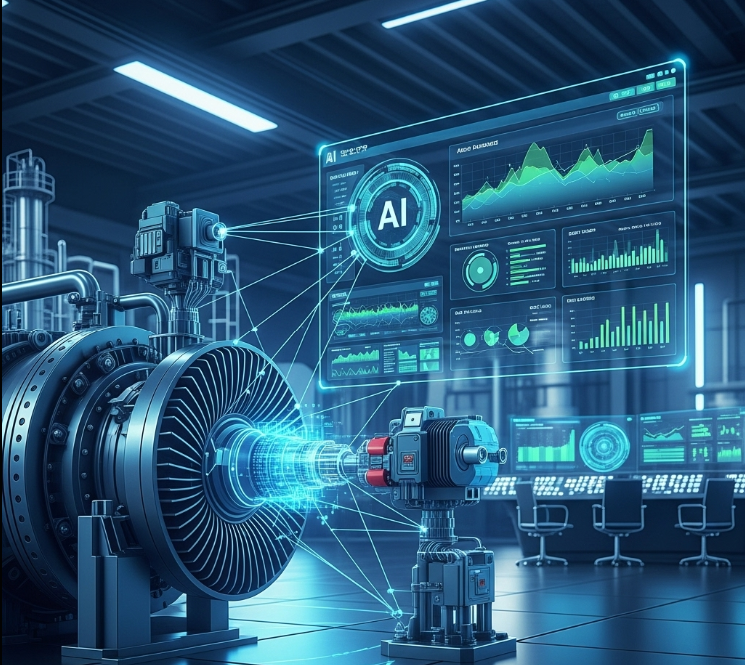The Role of Machine Learning in Optimizing Industrial Processes
- Mohamed Alhashme
- Oct 30, 2024
- 3 min read

Machine learning (ML) is revolutionizing industrial processes, offering unprecedented opportunities for optimization, efficiency, and productivity. As the manufacturing sector continues to embrace digital transformation, ML has emerged as a key driver of innovation and competitive advantage. Let's explore how this powerful technology is reshaping industrial operations and delivering tangible benefits across various sectors.
Enhancing Operational Efficiency
Machine learning algorithms are transforming the way industrial processes are managed and optimized. By analyzing vast amounts of data from sensors and interconnected machines, ML can identify patterns, predict outcomes, and suggest improvements that human operators might overlook.
Predictive Maintenance
One of the most impactful applications of ML in manufacturing is predictive maintenance. By leveraging historical and real-time data from equipment sensors, ML algorithms can:
Anticipate potential failures before they occur
Minimize unplanned downtime
Extend equipment lifespan
Reduce maintenance costs
For example, Boeing uses ML to analyze sensor data from aircraft engines, predicting potential problems before they cause costly in-flight failures. This approach not only saves millions of dollars but also ensures passenger safety.
Production Optimization
ML algorithms can analyze production line data to identify bottlenecks, inefficiencies, and opportunities for improvement. This data-driven approach enables manufacturers to:
Optimize production flow
Reallocate resources effectively
Plan output more efficiently
Ford, for instance, has used ML to analyze data from its assembly lines, leading to increased output of their Mustang Mach-E electric vehicle.
Improving Product Quality
Machine learning is also playing a crucial role in enhancing product quality through advanced defect detection and quality control processes.
Advanced Defect Detection
ML-powered computer vision systems can inspect products with a level of accuracy and speed that surpasses human capabilities. These systems can:
Detect even the slightest imperfections
Analyze high-resolution images in real-time
Ensure products meet stringent quality standards
Siemens, for example, utilizes ML-powered vision systems to inspect wind turbine blades for imperfections, significantly reducing the risk of failure.
Quality Control Optimization
By analyzing data from various stages of the production process, ML algorithms can:
Identify factors that contribute to quality issues
Suggest process adjustments to improve product quality
Reduce the number of defective products reaching consumers
This approach not only saves money but also strengthens brand reputation by ensuring consistently high-quality products.
Streamlining Supply Chain Management
Machine learning is transforming supply chain management, offering solutions for demand forecasting, inventory optimization, and logistics planning.
Demand Forecasting
ML algorithms can analyze historical sales data, market trends, and external factors to provide more accurate demand forecasts. This enables manufacturers to:
Optimize inventory levels
Reduce carrying costs
Improve customer satisfaction through better product availability
Inventory Management
By automating inventory management processes, ML helps manufacturers:
Forecast inventory requirements more accurately
Manage resources more efficiently
Reduce stockouts and overstock situations
Logistics Optimization
ML can optimize shipping routes, predict delivery times, and improve overall logistics efficiency, leading to reduced costs and improved customer satisfaction.
Implementing Machine Learning in Manufacturing
While the benefits of ML in manufacturing are clear, successful implementation requires careful planning and execution. Here's a step-by-step guide for manufacturers looking to leverage ML:
Define use cases: Identify specific problems or processes that could benefit from ML optimization.
Gather and clean data: Collect relevant data from various sources and ensure its quality and consistency.
Develop and train models: Create ML models tailored to your specific use cases and train them using historical data.
Validate and deploy: Test the models thoroughly before deploying them in a production environment.
Monitor and refine: Continuously monitor the performance of ML models and refine them based on new data and changing conditions.
Challenges and Considerations
While ML offers significant benefits, manufacturers should be aware of potential challenges:
Data quality and availability: Ensuring access to high-quality, relevant data is crucial for ML success.
Integration with existing systems: ML solutions must be seamlessly integrated with existing manufacturing processes and IT infrastructure.
Skill gap: Implementing ML requires specialized skills that may not be readily available in-house.
Ethical considerations: As ML becomes more prevalent, manufacturers must address ethical concerns related to data privacy and job displacement.
Machine learning is transforming industrial processes, offering manufacturers unprecedented opportunities for optimization and efficiency. From predictive maintenance to quality control and supply chain management, ML is driving innovation across the manufacturing sector. By carefully implementing ML solutions and addressing potential challenges, manufacturers can gain a significant competitive advantage in an increasingly digital industrial landscape.
In this rapidly evolving landscape of industrial process optimization, NovaeSight emerges as a pioneering force. As a cutting-edge technology company specializing in advanced data analytics and machine learning solutions, NovaeSight is at the forefront of revolutionizing manufacturing processes. By leveraging state-of-the-art AI algorithms and deep industry expertise, NovaeSight empowers manufacturers to unlock the full potential of their data, driving unprecedented levels of efficiency, quality, and innovation. Whether it's predictive maintenance, real-time process optimization, or supply chain forecasting, NovaeSight's tailored solutions are designed to address the unique challenges of modern industrial environments, helping businesses stay competitive in an increasingly data-driven world.




Comments